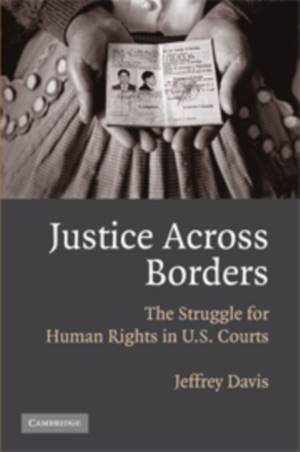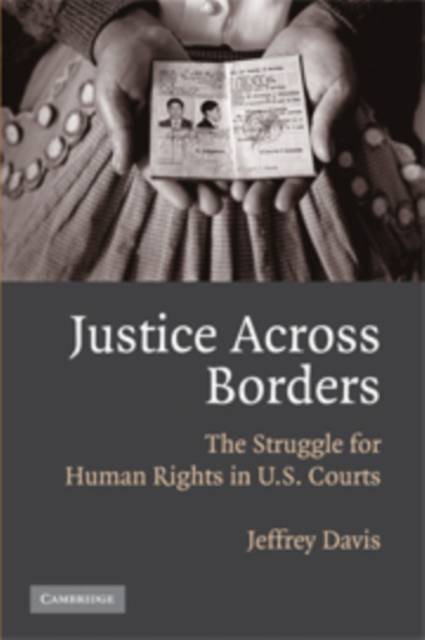
Je cadeautjes zeker op tijd in huis hebben voor de feestdagen? Kom langs in onze winkels en vind het perfecte geschenk!
- Afhalen na 1 uur in een winkel met voorraad
- Gratis thuislevering in België vanaf € 30
- Ruim aanbod met 7 miljoen producten
Je cadeautjes zeker op tijd in huis hebben voor de feestdagen? Kom langs in onze winkels en vind het perfecte geschenk!
- Afhalen na 1 uur in een winkel met voorraad
- Gratis thuislevering in België vanaf € 30
- Ruim aanbod met 7 miljoen producten
Zoeken
Justice Across Borders
The Struggle for Human Rights in U.S. Courts
Jeffrey Davis
Hardcover | Engels
€ 111,45
+ 222 punten
Uitvoering
Omschrijving
This book studies the struggle to enforce international human rights law in federal courts. In 1980, a federal appeals court ruled that a Paraguayan family could sue a Paraguayan official under the Alien Tort Statute - a dormant provision of the 1789 Judiciary Act - for torture committed in Paraguay. Since then, courts have been wrestling with this step toward a universal approach to human rights law. The book examines attempts by human rights groups to use the law to enforce human rights norms. It explains the separation of powers issues arising when victims sue the United States or when the United States intervenes to urge dismissal of a claim. Moreover, it analyzes the controversies arising from attempts to hold foreign nations, foreign officials, and corporations liable under international human rights law. While Davis's analysis is driven by social science methods, its foundation is the dramatic human story from which these cases arise.
Specificaties
Betrokkenen
- Auteur(s):
- Uitgeverij:
Inhoud
- Aantal bladzijden:
- 318
- Taal:
- Engels
Eigenschappen
- Productcode (EAN):
- 9780521878173
- Verschijningsdatum:
- 2/06/2008
- Uitvoering:
- Hardcover
- Formaat:
- Ongenaaid / garenloos gebonden
- Afmetingen:
- 155 mm x 231 mm
- Gewicht:
- 544 g

Alleen bij Standaard Boekhandel
+ 222 punten op je klantenkaart van Standaard Boekhandel
Beoordelingen
We publiceren alleen reviews die voldoen aan de voorwaarden voor reviews. Bekijk onze voorwaarden voor reviews.









